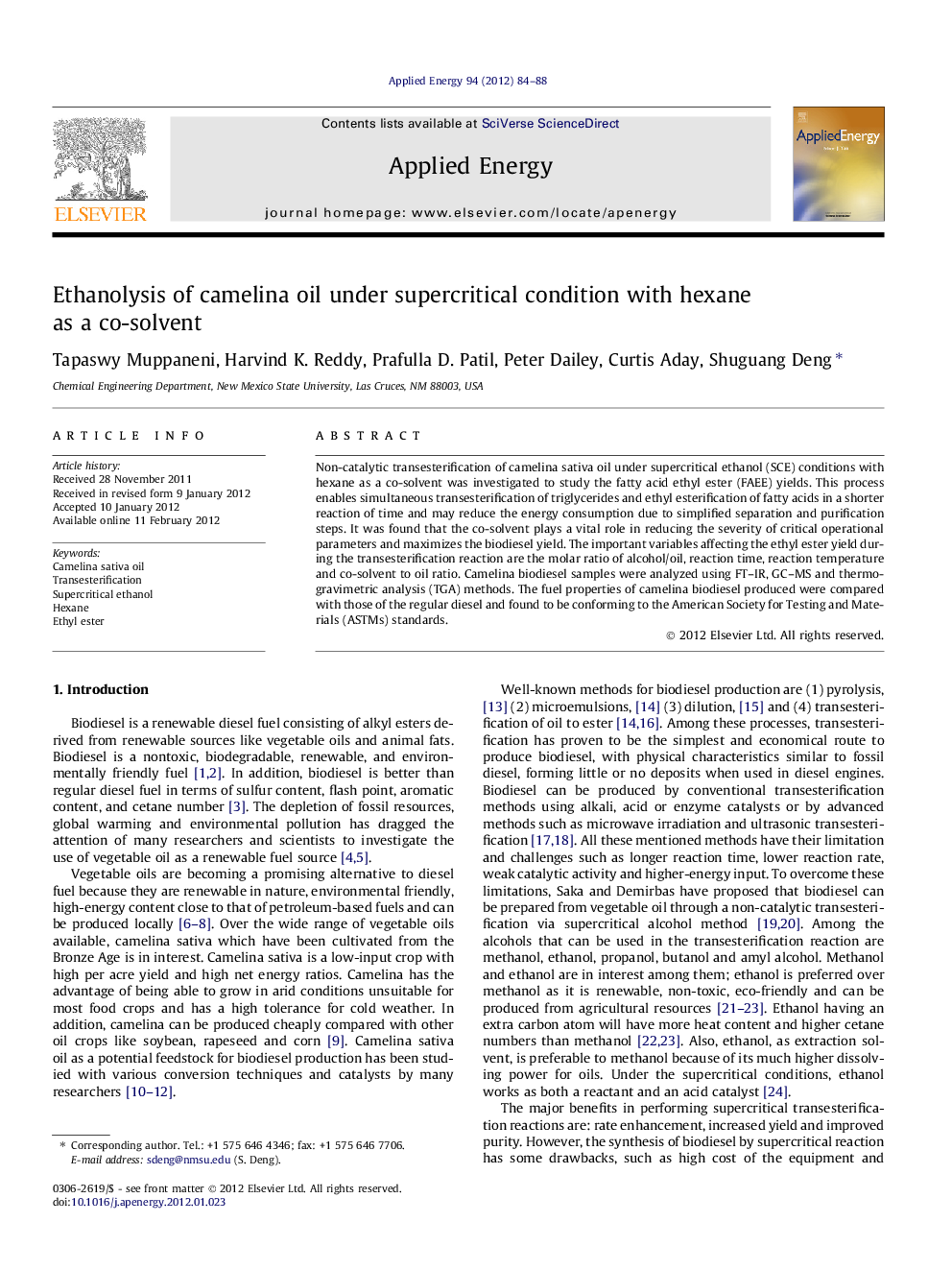| Article ID | Journal | Published Year | Pages | File Type |
|---|---|---|---|---|
| 243394 | Applied Energy | 2012 | 5 Pages |
Non-catalytic transesterification of camelina sativa oil under supercritical ethanol (SCE) conditions with hexane as a co-solvent was investigated to study the fatty acid ethyl ester (FAEE) yields. This process enables simultaneous transesterification of triglycerides and ethyl esterification of fatty acids in a shorter reaction of time and may reduce the energy consumption due to simplified separation and purification steps. It was found that the co-solvent plays a vital role in reducing the severity of critical operational parameters and maximizes the biodiesel yield. The important variables affecting the ethyl ester yield during the transesterification reaction are the molar ratio of alcohol/oil, reaction time, reaction temperature and co-solvent to oil ratio. Camelina biodiesel samples were analyzed using FT–IR, GC–MS and thermogravimetric analysis (TGA) methods. The fuel properties of camelina biodiesel produced were compared with those of the regular diesel and found to be conforming to the American Society for Testing and Materials (ASTMs) standards.
Graphical abstractTransesterification reaction of triglyceride at supercritical ethanol condition.Figure optionsDownload full-size imageDownload as PowerPoint slideHighlights► Transesterification of camelina sativa oil under supercritical ethanol conditions. ► Simultaneous transesterification and ethyl esterification of fatty acids. ► Hexane as a co-solvent for the transesterification of camelina sativa oil. ► Analysis of camelina biodiesel properties using various instruments.
